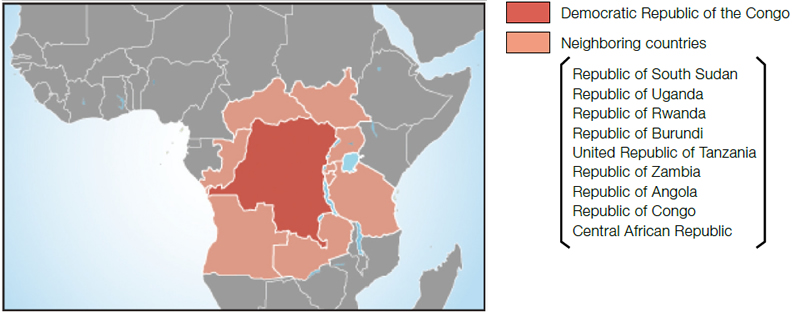Respecting Human Rights
Kubota Group has established Human Rights Policy and works to respect human rights in accordance with the procedures set out in the United Nations Guiding Principles on Business and Human Rights (hereinafter referred to as the “UNGPs”.)
Kubota Group Human Rights Policy
Kubota Group hereby declares as its Human Rights Policy that it supports international standards with regard to human rights and respects these as our birthright of all people. Kubota Group respects the human rights of all people affected by its business activities in accordance with the procedures outlined in the UNGPs.
Governance of promoting Business and Human Rights
Kubota Group is obliged to promptly understand the possibility of causing or contributing to any negative impact on human rights through its own business activities, and/or having any negative impact on human rights through its business relationships and is to deal with them appropriately. We regard respect for human rights as an important prerequisite for business continuity, and the Kubota Group Risk Management Committee receives reports (at least twice a year) on our efforts to respect human rights, monitors our activities, and issues instructions on our activities as appropriate.
-
[Governance structure to promote Business and Human Rights initiatives]
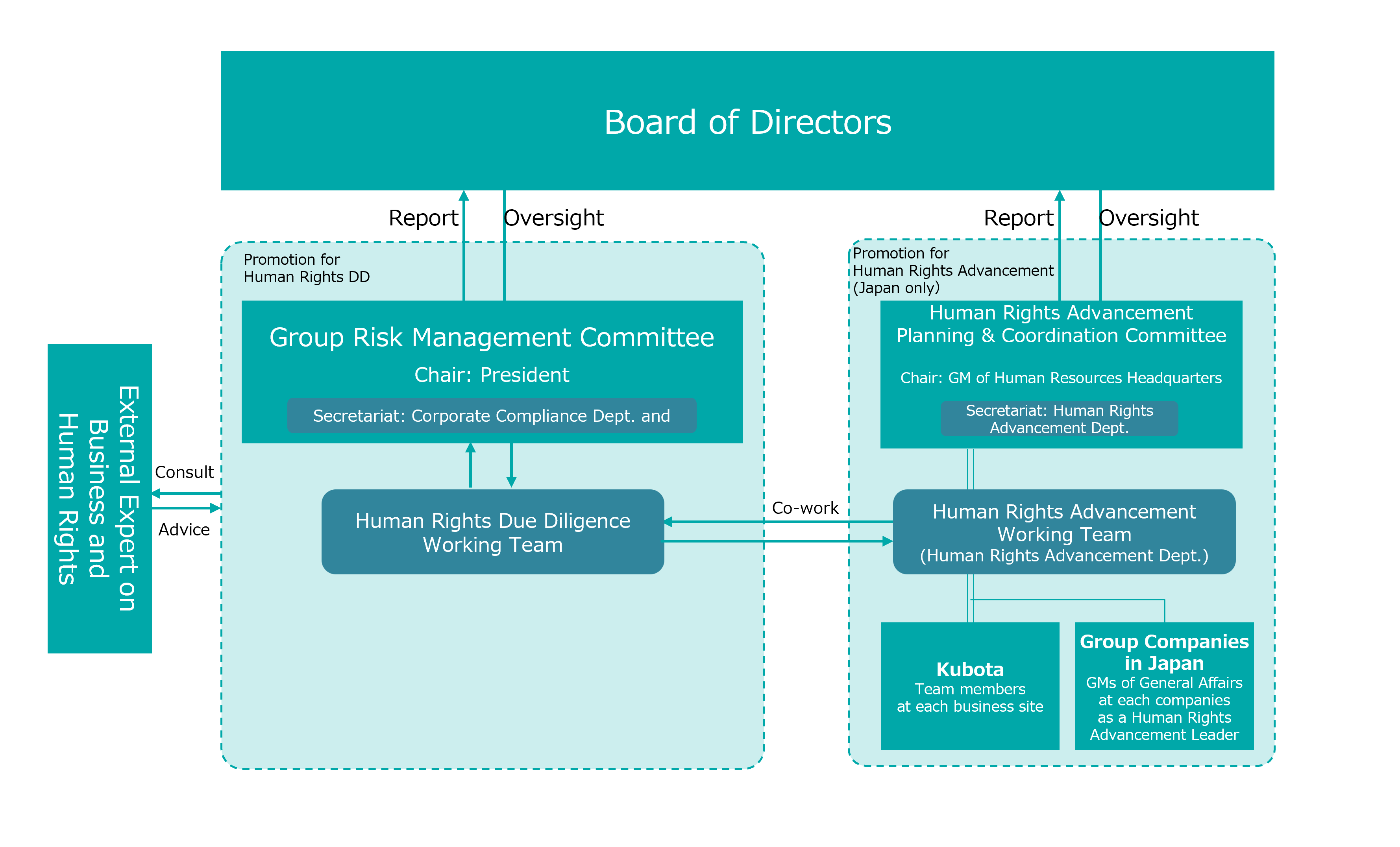
Human Rights DD Working Team, which is comprised of the Corporate Compliance Dept., Human Rights Advancement Dept., Procurement Planning Dept., and ESG Promotion Dept., is responsible for implementing the Business and Human Rights initiatives within Kubota Group based on the policies and instructions approved by the Kubota Group Risk Management Committee. The Human Rights DD Secretariat holds operational activity meetings about once a month, and plans and promotes activities while referring to advice from external organizations and experts as appropriate, and then, regularly report the plan and project status to the Risk Management Committee. In 2024, the Human Rights Due Diligence Working Team held 13 operational activity meetings. In addition, we are currently working to place regional human rights DD officers, and develop a system to promote human rights DD initiatives on a Group's global basis.
- The Human Rights DD:The Human Rights Due Diligence
System for Promoting Human Rights Awareness
In Japan, we have established a Human Rights Advancement Planning & Coordination Committee, chaired by the General Manager of the Human Resources Headquarters, which meets once a year. Committee members at each location advance activities based on the human rights advancement activity policy. At the beginning of the fiscal year, a meeting attended by committee members from all local business sites is held. At each location, in addition to committee members, human rights leaders are appointed, who are responsible for undertaking human rights awareness activities.
As part of these activities, every year we call on employees in Japan, including at domestic Group companies, to enter a slogan contest for the designated week by the Ministry of Justice (“Human Rights Week,” December 4 to December 10.) Awards are presented for the slogans judged to be the best. In 2024, 23,695 people participated (a participation rate of 95.7%), and the best entries in the contest from each location were displayed in the form of posters.
Human Rights Due Diligence
To fulfill the responsibility for respecting human rights as a company, the Kubota Group continuously promotes human rights due diligence as we recognize it to be an essential process for business activities. Human rights due diligence is the process of identifying and assessing any actual and/or potential negative impact, and preventing and mitigating it. Kubota group carries out the process in accordance with UNGPs.
〈Conceptual diagram of initiatives in line with the UNGPs〉
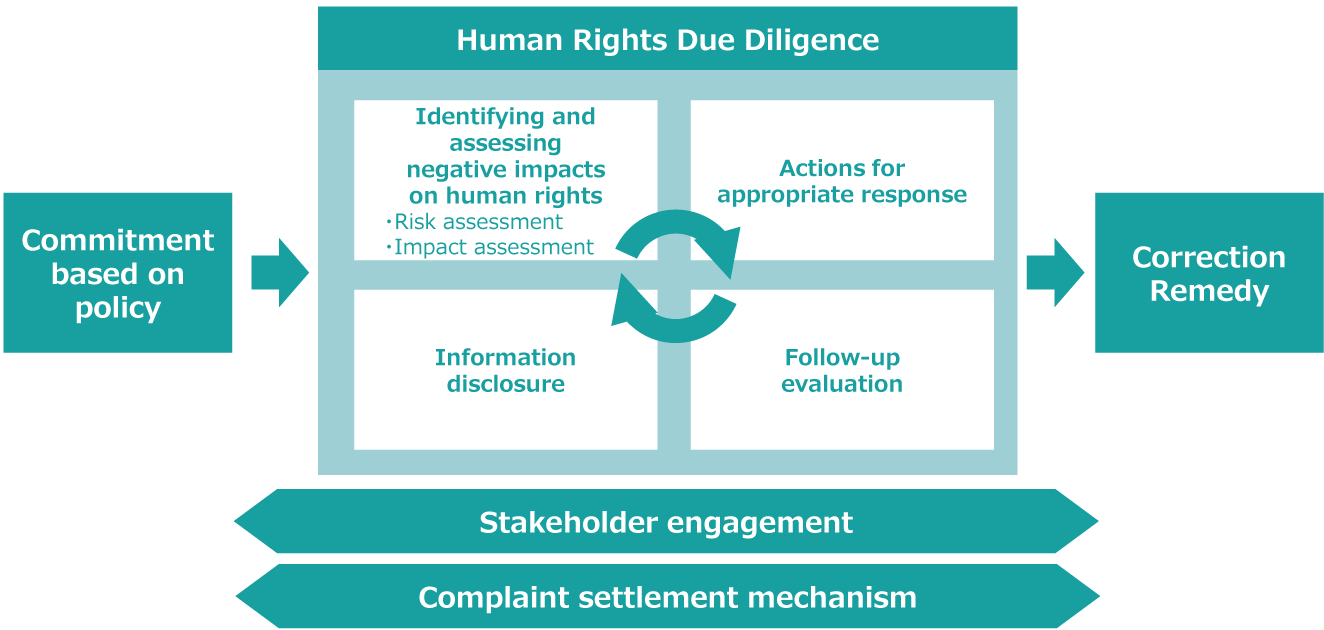
Human Rights Risk Assessment
In March 2023, Kubota Group began initiatives to identify human rights risks in its business and supply chain. Please see here for the process of this human rights risk assessment. As a result, the following were identified as prominent human rights issues, and the status of respect for human rights is being confirmed through engagement with the identified rights holders. The Kubota Group will periodically review prominent human rights issues in light of changing business content, business environment, and social conditions.
- Salient human rights issues
- Decent wages
- Migrant workers
- Harassment
- Decent working time
- Forced labor
- Access to remedy
- Discrimination at workplace
- Child labor
Human Rights Impact Assessment
Kubota identifies vulnerable rights holders and confirms the existence of the above human rights issues, and strives to respond appropriately to the issues in accordance with the actual risks and impacts identified. At present, we are mainly working on initiatives for the rights holders of Kubota (non-consolidated), but in the future we will expand the scope of our initiatives to include the rights holders of our group companies.
Own workforce
- Building a workplace free from harassment
- The Kubota Group conducts education and enlightenment to create a workplace free from harassment, etc., and works to provide relief through measures such as establishing a complaint processing system. Please refer the ESG report for more details.
- Working and living conditions for migrant workers
- The Kubota Group's business is supported by employees and workers of various nationalities. Kubota strives to understand the vulnerability of such people, especially migrant workers, and promotes efforts to respect their human rights. Details are posted on our website as appropriate.
Workers in the value chain
- We conduct CSR procurement surveys of our major suppliers.
- Please refer to the following link for examples of our company's sustainable procurement activities.
Affected communities
- Our company's response related to asbestos is available on our website.
- Kubota has established a policy for social contribution activities and conducts those. Please refer ESG Report for details.
Consumers and end-users
- Appropriate management of personal information
- We recognize that it is an important social responsibility to appropriately protect and manage the personal information of our customers and other stakeholders. Kubota has established a "Personal Information Protection Policy" and discloses related information on its website.
- To ensure the safe and proper use of our products
- Product manuals, after-sales service, information on recalls, and information on work safety are available on our website, and supporting to protect a sustainable industry.
Human Rights Education
Aiming to create a harassment-free, conducive workplace environment, Kubota plans and provides human rights education programs for all employees, including President and Directors, every year, based on the human rights advancement activity policies. The human rights education program can also be accessed from overseas via a video conference system.
The human rights education programs include rank-based training for new employees and at each site. In addition, to ensure ease of access for participants, we continued to offer training via e-learning. All Kubota employees (in terms of the total number of participants) in Japan received human rights education through internal training or training offered by external organizations.
In near future, human rights training shall be scheduled for all group global employees, including the presidents and directors of group companies in the world.
-
Human Rights Training for Management Executives in Oct. 2024
Theme: “AI and Human Rights”
Mr. Shinnosuke Fukuoka,Attorney at Law (Japan and NY),Partner, Nishimura & Asahi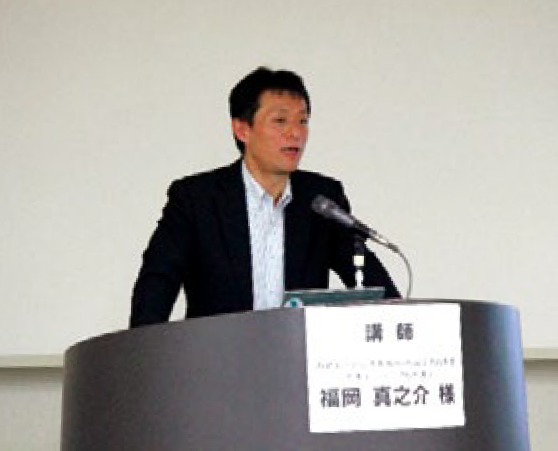
-
e-learning materials on human rights advancement
- Examples of themes of e-learning
- Trends related to human rights (e.g. legal revision)
- Power harassment (Abuse of authority)
- Customer harassment (Excessive complain by a customer)
- Business and Human Rights
- Remedy consultation
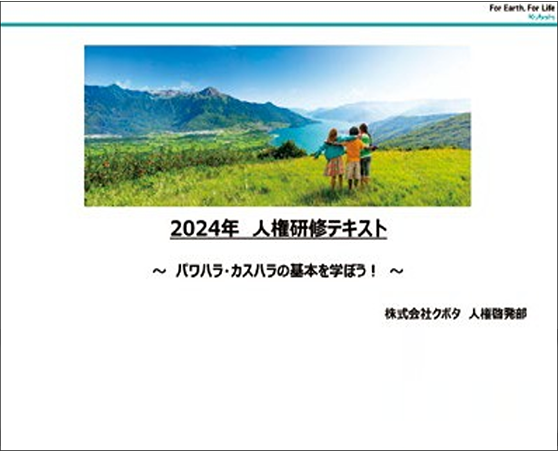
- Examples of themes of e-learning
The result of the human rights education in the Kubota Group conducted this year, including the previous section, is shown as follows.
Results of Internal Training in 2024 (Japan only)
| Training session | Participants | Method | Frequency | Targeted participants | Number in attendance | Participation rate |
|---|---|---|---|---|---|---|
| When joining Kubota | New employees | In-person group training | When joining Kubota | 536 | 536 | 100% |
| Position-based training | Newly appointed foremen | In-person group training | Upon promotion | 17 | 17 | 100% |
| Newly appointed supervisors | In-person group training | Upon promotion | 56 | 56 | 100% | |
| Management executives | Lecture from external speaker | Once a year | 47 | 37 | 78.72% | |
| Training for all domestic Group executives and employees | All domestic Group executives and employees | e-learning | Once a year | 24,143 | 22,905 | 94.87% |
Participation in the External Training
We actively participate in seminars organized by groups of companies and government agencies that work on human rights issues. For example, we have participated in the 45th Human Rights and Dowa Issue Corporate Awareness-Raising Seminar (48 participants from our Group), and the 55th Buraku Liberation and Human Rights Summer Seminar (26 participants from our Group) in 2024, both of which were organized by Osaka Prefecture, Osaka City, Buraku Liberation and Human Rights Research Institute, etc.
Grievance Mechanisms
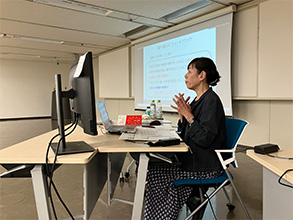
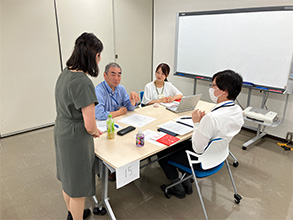
Harassment Consultation Office Personnel Seminar (July 4, July 16, July 18, July 25, 2024)
(Lecturer: Ms. Toshiko Sugimoto, Full-time Lecturer, Japan Institute for Women’s Empowerment & Diversity Management)
As remedial action for victims of human rights violation, Kubota established Hotline a whistleblowing system that includes the use of outside lawyers and consultation office systems at each of its bases, including those overseas, thereby enabling it to respond swiftly to any issues that may arise. We raise the awareness of Kubota Hotline by distributing pocket cards with contact details and introducing such offices through the Company intranet, posters, email magazines, human rights seminars, and so on.
To ensure that the voices received are processed in an appropriate manner, Kubota holds a seminar for harassment consultation office personnel inviting external lecturers annually, with the aim of improving their counseling ability and preventing secondary victimization. A total of 142 employees took part in this seminar via online in 2024. The seminar focused on enabling the personnel to take prompt and appropriate action against several types of harassment, such as sexual, power, or maternity harassment, or harassment against sexual minorities, without causing any disadvantage to the complainant.
Number of cases reported on human rights issues (including harassment) in 2024: 96
Kubota Hotline |
Global Hotline |
Supplier Hotline |
|||
|---|---|---|---|---|---|
| Responsible of Corporate Compliance Dept. |
Responsible of Human Rights Advancement Dept. |
Responsible of external lawyers |
|||
| User (restriction) |
Directors and employees of Kubota and Group companies in Japan, directors and employees of any parties continuously providing services at any properties of Kubota or Group companies | Same as the left column by outside Japan (under preparation) |
Directors and employees of supplies which located in Japan | ||
| Type of issues | Compliance cases except for those related to human rights | Human rights cases (harassment, discrimination, etc.) |
Compliance cases and human rights cases | 4 models; violation of competition law, bribery, confidentiality, and managemental misconduct | Suspected violation for subcontract acts by Kubota side, human rights issues inside suppliers, and others |
| Anonymous | Yes (to give a notice that there is restriction to make an investigation and to find remedies) |
- ditto - | - ditto - | ||
| Way to contact | Phone, Website, Email and Sealed letter | Phone, Email and consultation | Website and Phone | Website | |
Activities and Engagement Related to Human Rights
Participation in the United Nations Global Compact
Kubota Corporation expressed participation in the United Nations Global Compact, and officially signed its statement. This initiative is participated by thousands of companies globally committed to taking responsible business action to create the world we all want. Kubota is proud to join those and also commits to continue taking its responsible business action. In 2024, Kubota participated in the “Kansai (=west Japan) Forum” which is an association with companies mainly located in western area of Japan. Through this forum, the participants engaged in dialogue with experts, other organizations and companies, exchanged information on initiatives to address the issues proposed by the Global Compact, and held repeated discussions on their respective activities.
Membership of the other external organizations
Kubota (non-consolidated) participates in the external organizations below and is working to create a discrimination-free society.
- The Corporate Federation for Dowa and Human Rights Issues, Osaka (also participating in Shiga, Wakayama, Hyogo, Chiba and Hiroshima)
- Osaka City Corporate Human Rights Promotion Council (with related organizations in each municipality)
- The Center for Fair Recruitment and Human Rights Advancement
- Multi-Ethnic Human Rights Education Center for Pro-existence
- Osaka Career Support & Talent Enhancement Plaza
- Buraku Liberation and Human Rights Research Institute, etc.
Modern Slavery Statement
Kubota Group has released its statement according to the UK Modern Slavery Act and has updated it each year, which can be seen on the below link.
Dialogue with External Experts on Business and Human Rights
The Kubota Group regularly holds dialogues with external experts to evaluate its initiatives on “business and human rights“ and gain insights for future initiatives. Our directors and executive officers participate in these dialogues, and we promote our group's initiatives based on the opinions we receive.
Communication with External Audiences
The Kubota Group is working to actively communicate its activities, including those related to “business and human rights,“ to external audiences.
Major activities in 2024
- In July 2024, we gave a lecture on “Sustainable Management at Companies” at the Sustainable Finance School of the Graduate School of Frontier Sciences, the University of Tokyo. We explained how sustainability factors are incorporated into our business strategy, investment criteria, and evaluation and compensation systems, and also touched on our “Business and Human Rights Activities” as one of our specific initiatives.
- In October 2024, at the “2024 Business and Human Rights Conference in Tokyo” organized by the CRT Japan, we introduced the “Business and Human Rights” activities of our group since the formulation of the “Kubota Group Human Rights Policy” in December 2023. In particular, we explained the activities of human rights due diligence (impact assessment) targeting foreign workers. Through our participation, we were able to deepen our understanding of global trends in the area of ‘business and human rights’ as shared by global experts, and we also learned about the initiatives of other companies in the area of human rights due diligence, gaining insights that will help us to promote future initiatives within the Kubota Group.
Respecting Human Rights throughout the Supply Chain
Kubota declares in the Kubota Group Charter for Action, “we do not permit forced labor or child labor, and also request our business partners to comply in this regard.”
Also, in the Kubota Group Supplier Code of Conduct, Kubota declares that it does not permit forced labor or child labor, and also requests that its suppliers comply in this regard. The Code of Conduct also clearly prohibit the use of conflict minerals, which are a source of funds for armed insurgents.
In May 2017, the Kubota Group released its Group statement with regard to the UK Modern Slavery Act, and has updated its statement each year, which can be seen on our website.
For employees in Japan, explanation is provided during their human rights education programs. At overseas Group companies, the business site heads of each company provides explanation to the employees.
Our Approach to Conflict Minerals
- Policy on conflict minerals
-
Tantalum, tin, tungsten and gold, and their derivatives (“conflict minerals”) produced in the Democratic Republic of the Congo and its adjoining countries are the source of funds for armed insurgents, who have repeatedly committed inhumane acts in these countries. This is a major social issue of concern related to human rights, the environment, etc. in the supply chain.
As a part of its efforts to implement ESG management, Kubota promotes banning of the use of conflict minerals, which serve as a source of funds for the armed insurgents, and promptly takes steps to discontinue their use in the unlikely event that it becomes clear they are being so used.
Kubota seeks mutual understanding regarding this issue with its business partners, which are a part of the supply chain, and requests their cooperation in surveys and audits conducted by Kubota.
Democratic Republic of the Congo and Adjoining Countries
Activities
-
Written Inquiry
We use a conflict minerals reporting template (CMRT) to mainly confirm whether our suppliers are using conflict minerals, to identify smelters, and to gauge what kind of initiatives they are employing to address the issue of conflict minerals. We endeavor to improve the accuracy of the information we receive by asking our suppliers to resubmit the report if their answers are insufficient. In FY2024, 100% of the templates we sent out were returned.
-
Addressing Risks
For suppliers that do not have a conflict minerals procurement policy in place, we request that they establish one. Furthermore, we carry out additional investigations and conduct due diligence on suppliers we deem to be high risk.
-
Response Unit
Guided by our policy on conflict minerals, our activities are implemented company-wide through the Committee for Conflict Minerals, which comprises members from the ESG Management Division and Procurement Division.
